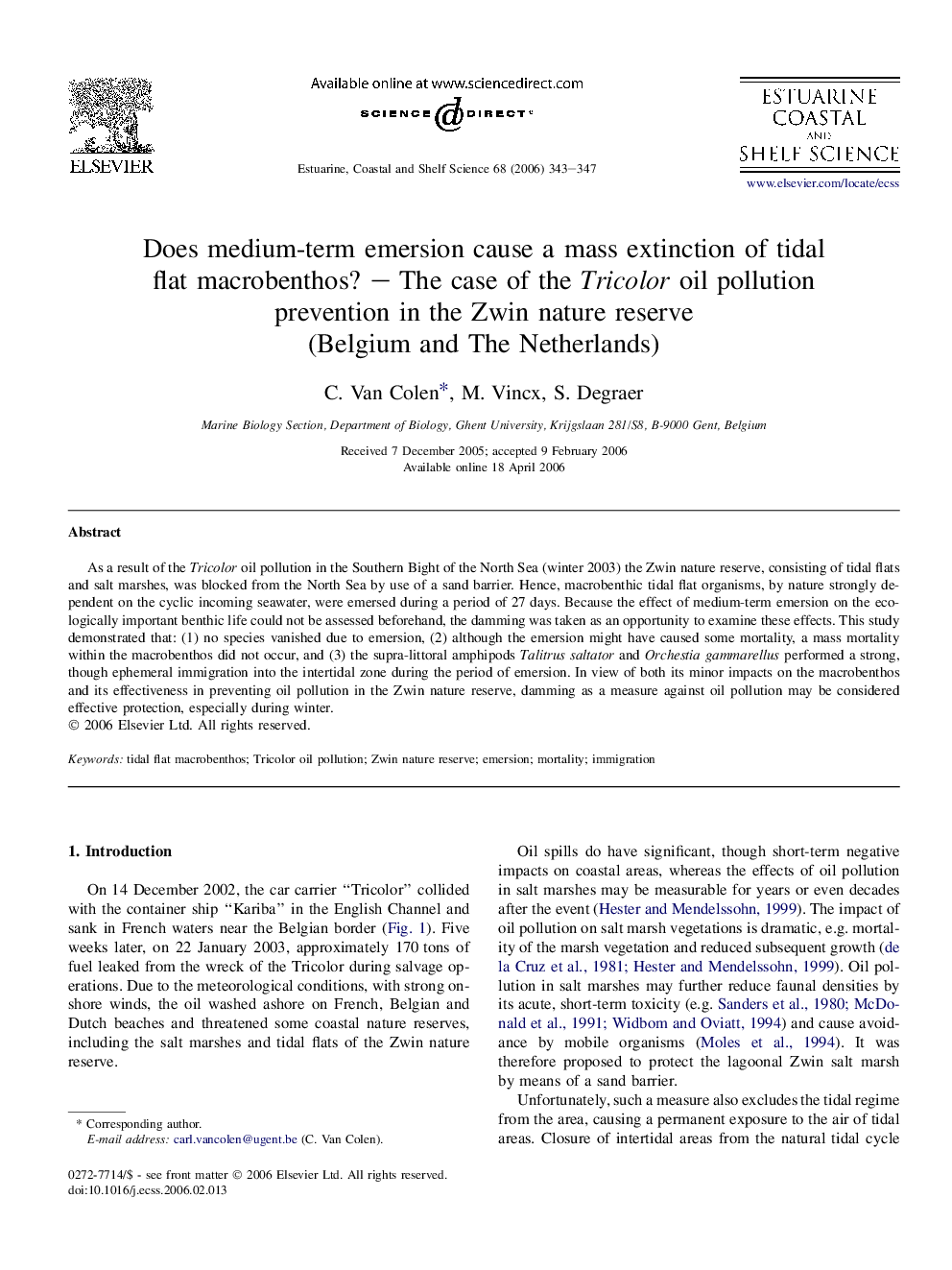| Article ID | Journal | Published Year | Pages | File Type |
|---|---|---|---|---|
| 4542309 | Estuarine, Coastal and Shelf Science | 2006 | 5 Pages |
As a result of the Tricolor oil pollution in the Southern Bight of the North Sea (winter 2003) the Zwin nature reserve, consisting of tidal flats and salt marshes, was blocked from the North Sea by use of a sand barrier. Hence, macrobenthic tidal flat organisms, by nature strongly dependent on the cyclic incoming seawater, were emersed during a period of 27 days. Because the effect of medium-term emersion on the ecologically important benthic life could not be assessed beforehand, the damming was taken as an opportunity to examine these effects. This study demonstrated that: (1) no species vanished due to emersion, (2) although the emersion might have caused some mortality, a mass mortality within the macrobenthos did not occur, and (3) the supra-littoral amphipods Talitrus saltator and Orchestia gammarellus performed a strong, though ephemeral immigration into the intertidal zone during the period of emersion. In view of both its minor impacts on the macrobenthos and its effectiveness in preventing oil pollution in the Zwin nature reserve, damming as a measure against oil pollution may be considered effective protection, especially during winter.
